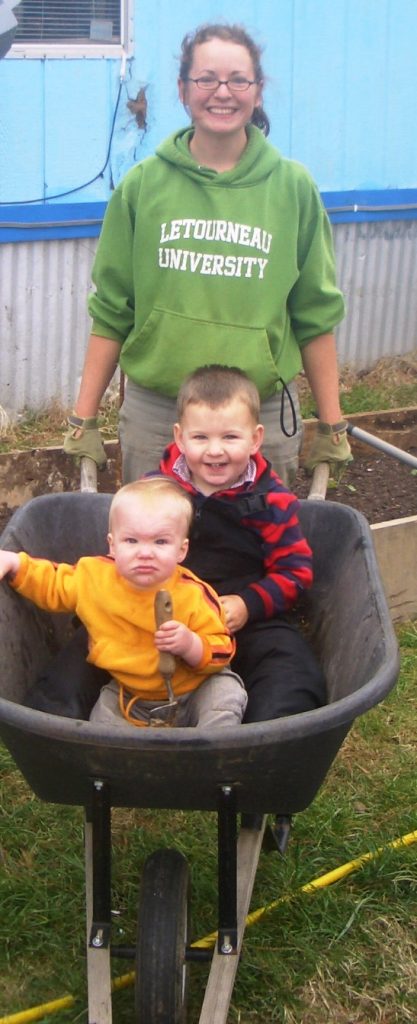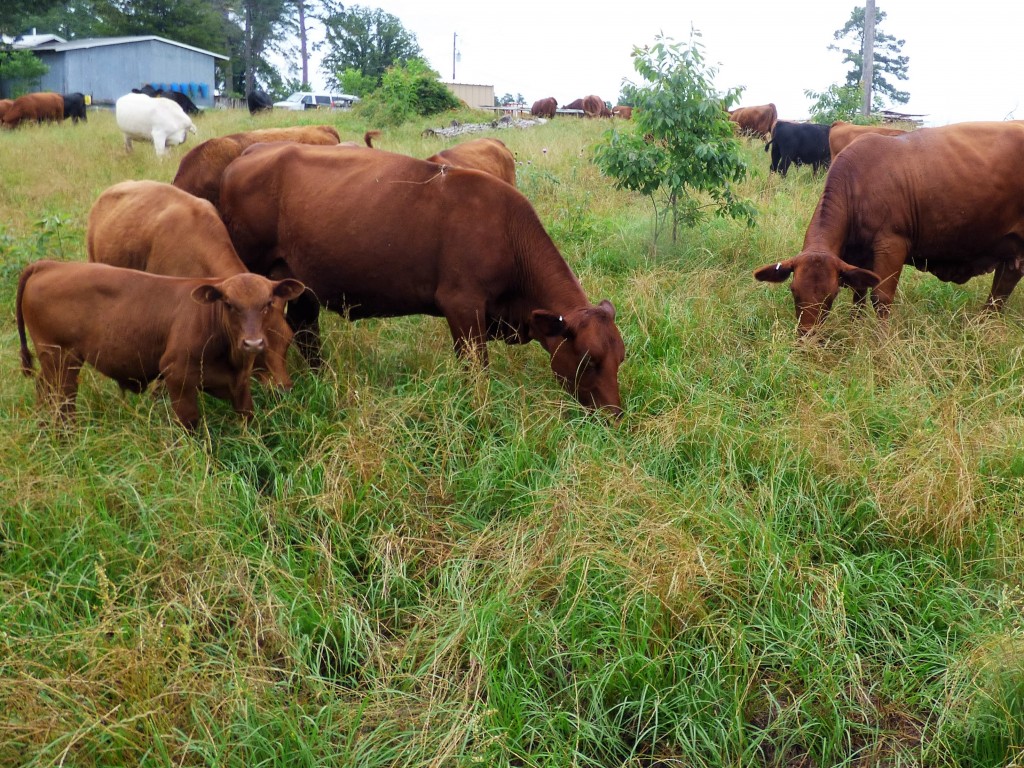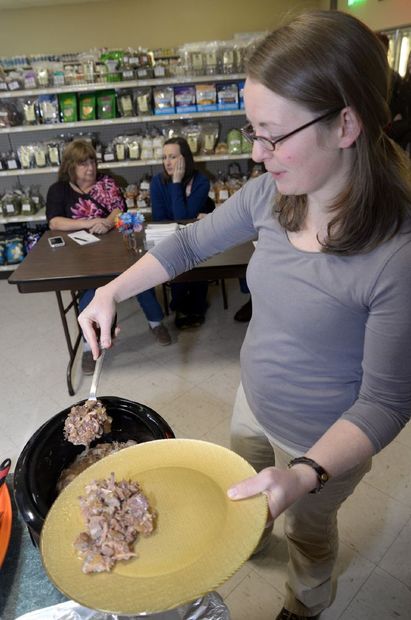I have some food for thought for you to ponder as we begin to answer some of the Big Questions that surround what we, the Cadmans, do and why we do it here at Shady Grove Ranch.
I’m going to do a series of brief articles that will hopefully build your foundation of understanding your food sources and also that encourage you to continue your commitment to supporting locally, naturally-raised foods.
I’ll keep it concise, and it won’t be research-paper-worthy (my researchy engineering inner self is protesting!), but I will provide a few sources to back up my claims. If you really care about the truth about food, I encourage you to dig deeper also.
So the first question is… when we started looking for healthier foods to heal Matt’s autoimmune gut disease (ulcerative colitis), why didn’t we start with vegetables?
Veggies were, after all, a little easier to come by in those days before the organic hype was reborn (this was back in 2006), and certainly they were cheaper than the “natural meats” we could find at that time. But when we ultimately took the plunge into farming, we focused primarily on animal products (beef, pork, milk, eggs, chicken, etc), in spite of the fact that they were more costly and difficult to begin with compared to vegetable production.
Now that’s not to say that we didn’t eat/buy any veggies (because we did a personal-size garden even before farming), and it’s not to say that it’s not important to choose organically-raised produce over conventional. And finally, that’s not to say that we’ll never have veggies as a farm product–in fact, we have grand plans to the contrary! (OK, enough with the disclaimers…)

But fresh, organic produce wasn’t the focus of our healing strategy. Why not?
One of the biggest influences on our eating choices was the work of Dr. Weston A. Price. Dr. Price traveled the globe during the beginning of globalization, but while there were still a significant number of people groups that continued to consume their ancestral diets. He studied groups like the Inuit, Celtic peoples, Polynesians, Aborigines, Masai, and indigenous Swiss.
Dr. Price looked primarily at dental health, fertility, and disease resistance as health indicators, and found that, though the peoples he studied ate quite a variety of foods, the common denominator was that the healthiest ones did not eat any refined westernized foods (like canned goods and processed sugars and grains), but they did eat at least some animal products from wild or sustainably-farmed sources, and they especially prized foods rich in fats and minerals, and fermented products.
Price-esque foods that Americans might be familiar with and have access to today would be things like bone broth, lacto-fermented vegetables, grass-fed butter and raw milk, pasture-raised eggs, grass-fed beef, pastured pork and chicken… Sound familiar? 🙂

Meats, or more correctly, animal products (milk, eggs, broth, fats, as well as protein), are key to nourishing and healing a struggling body. Vegetables are lovely and certainly bring something significant to the table, but Matt never could have made his recovery on just those.

We began with things like whole pasture-raised chickens, homemade yogurt, lots of bone broth, and plenty of fat. And sure enough, Matt slowly got well and remains so as long as he sticks with his diet rich in animal fat, homemade broth, fermented foods, and minimal processed junk. I can’t tell you how revolutionary it was to be told that foods like butter and bacon were good for us, after a life of feeling guilt for eating those foods because of those “artery-clogging saturated fats.” That phrase was probably ingrained into you growing up, too!
Challenge: Try to find some real saturated fat at today’s typical grocery store. It’s only in a handful of foods! Even the meats are finely trimmed and practically devoid of fat. Clearly we have effectively eliminated saturated fat (be careful to distinguish that from hydrogenated vegetable fat) from the standard American diet, and yet our general health as a nation continues to deteriorate. Animal fat is not the problem. I believe it is our lack of nutrient-dense foods and the bewildering presence of additives, chemicals, preservatives, and drugs that are taking their toll on our health as a nation.

This is a glimpse at the beginning of our journey and the reason we started farming with animal foods instead of vegetables. Animal products, even conventional ones, are the most nutrient-dense and contain nutrients that cannot be found anywhere else, despite what a lot of vegetarian hype may suggest. I don’t write that to offend–I was once a vegetarian, too! But when I really began to study, I began to understand that we need animal foods. And our soils need animal pressure. But both need the right kinds.
Next time we’ll talk more about what the right kinds of animal products are and how to distinguish them from mainstream marketing ploys.
Thanks for reading! Hope to hear from you soon!


